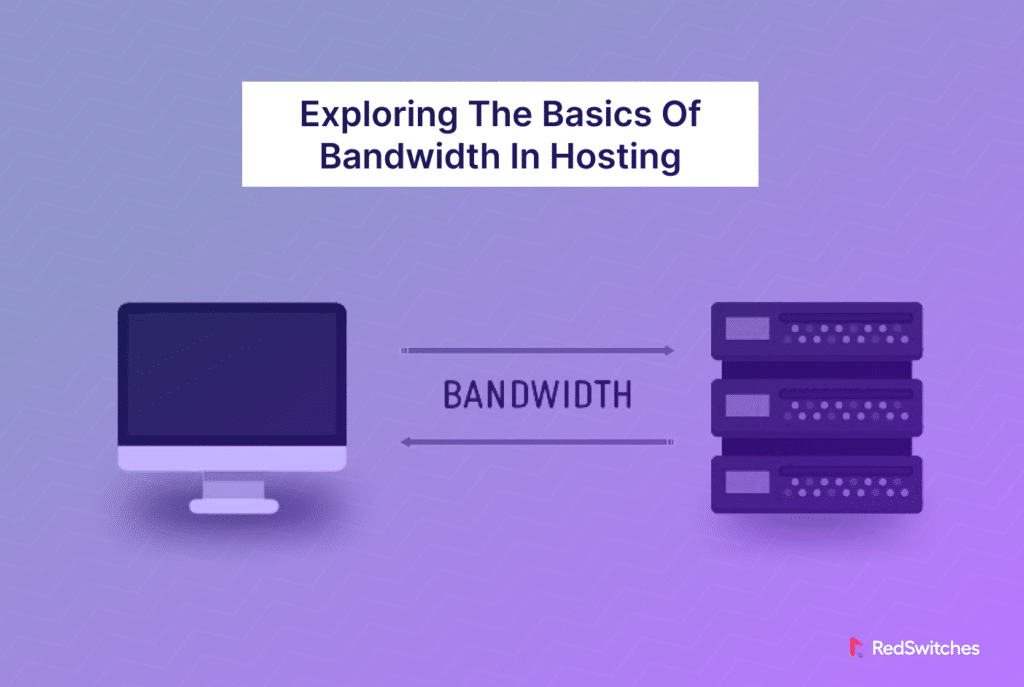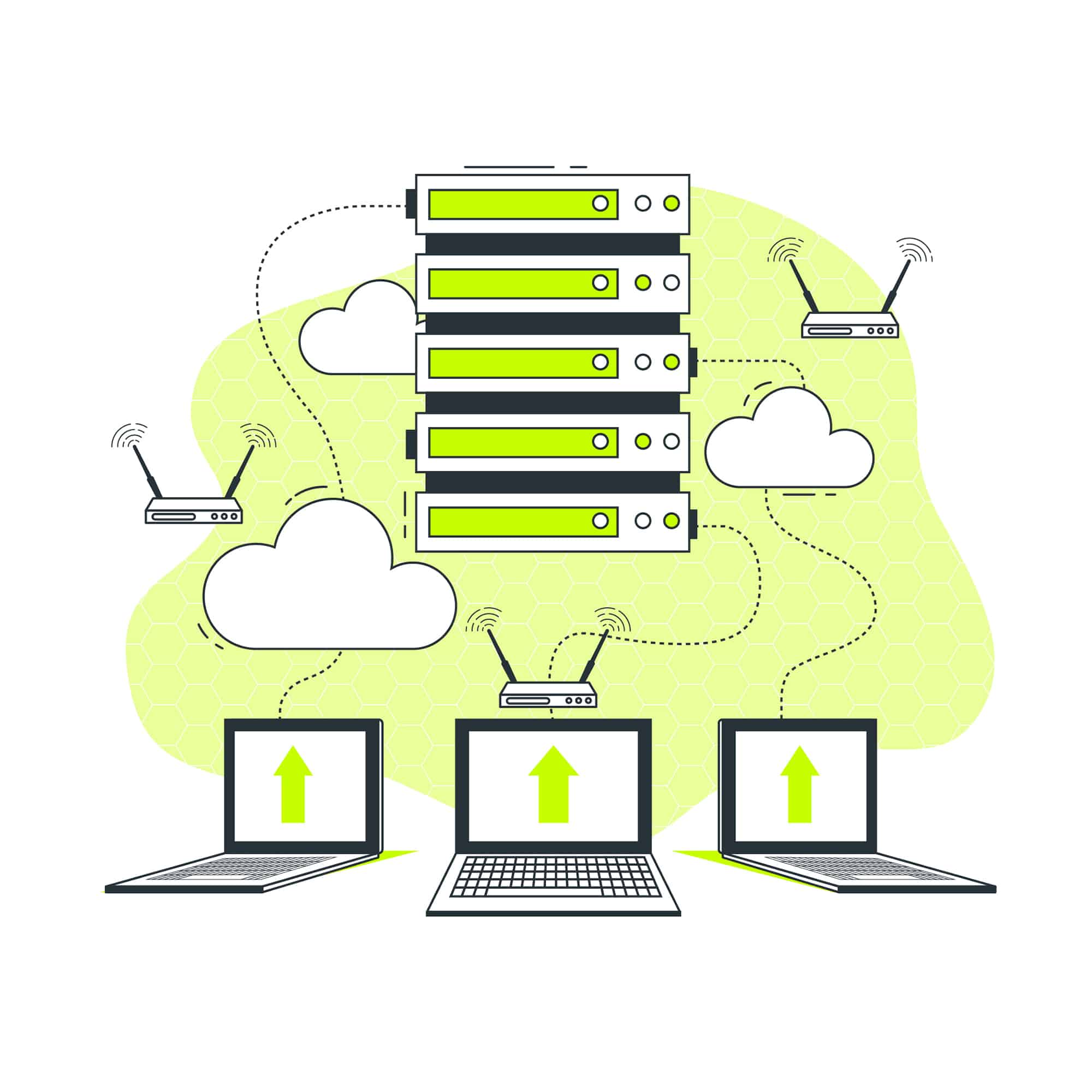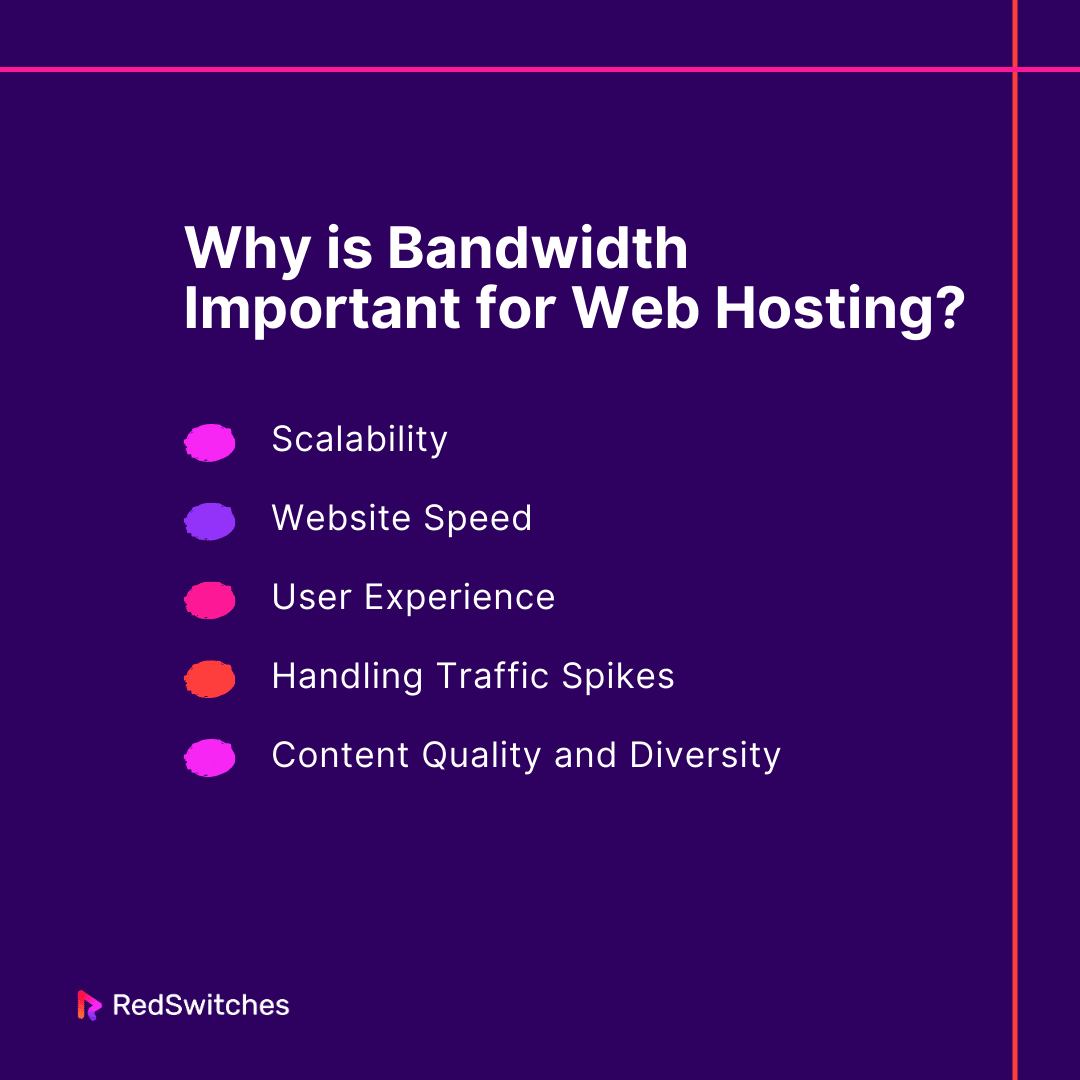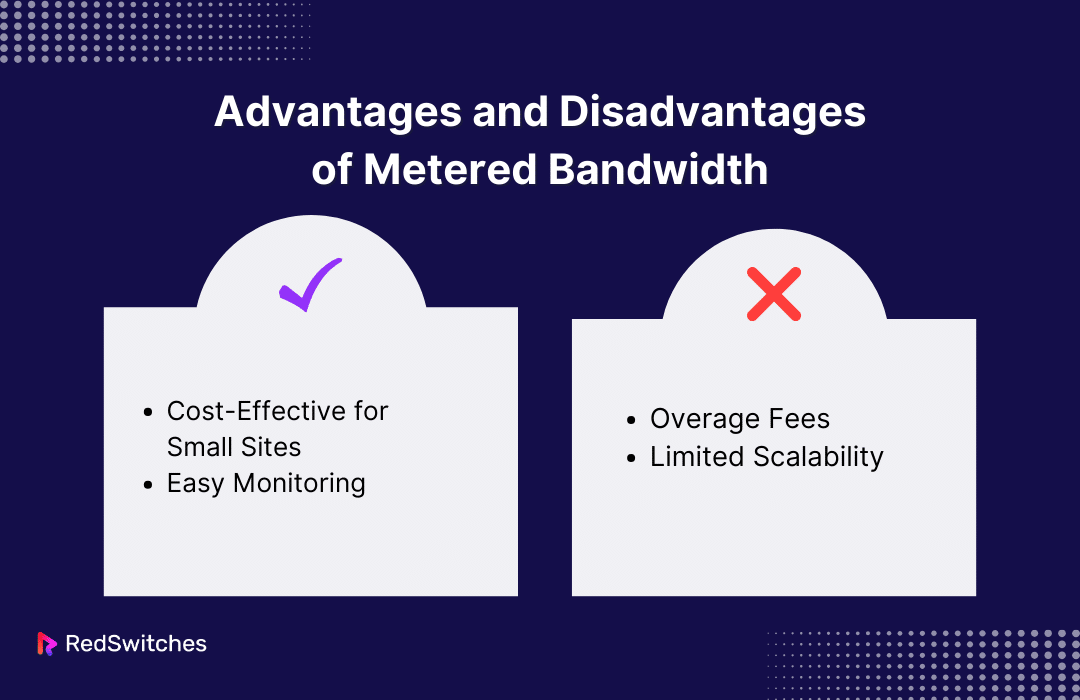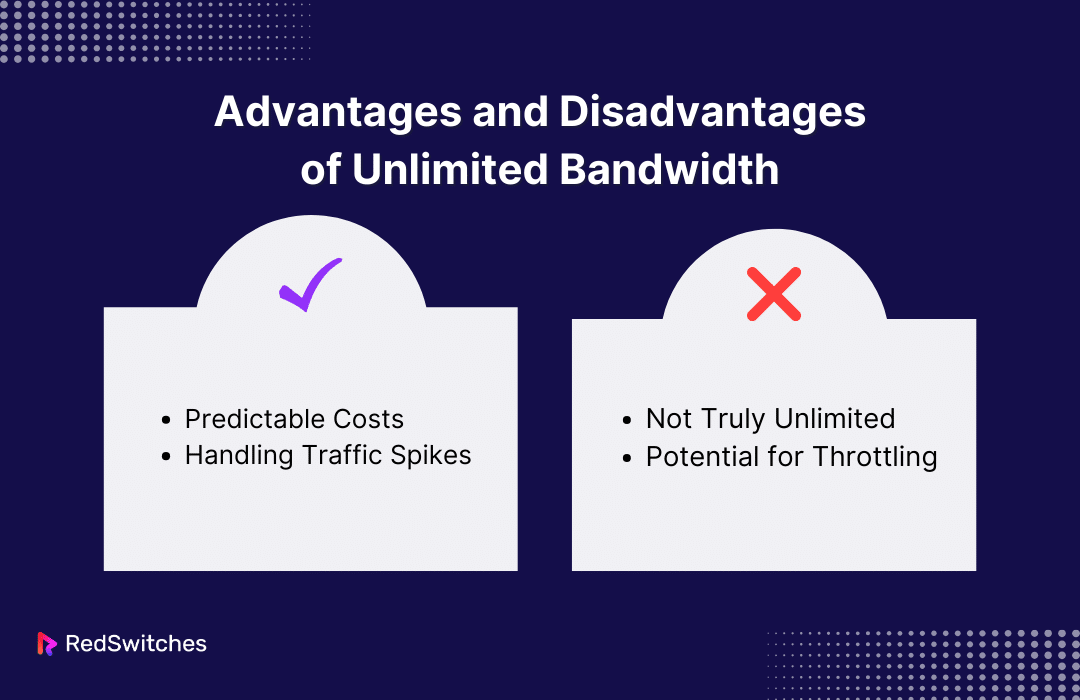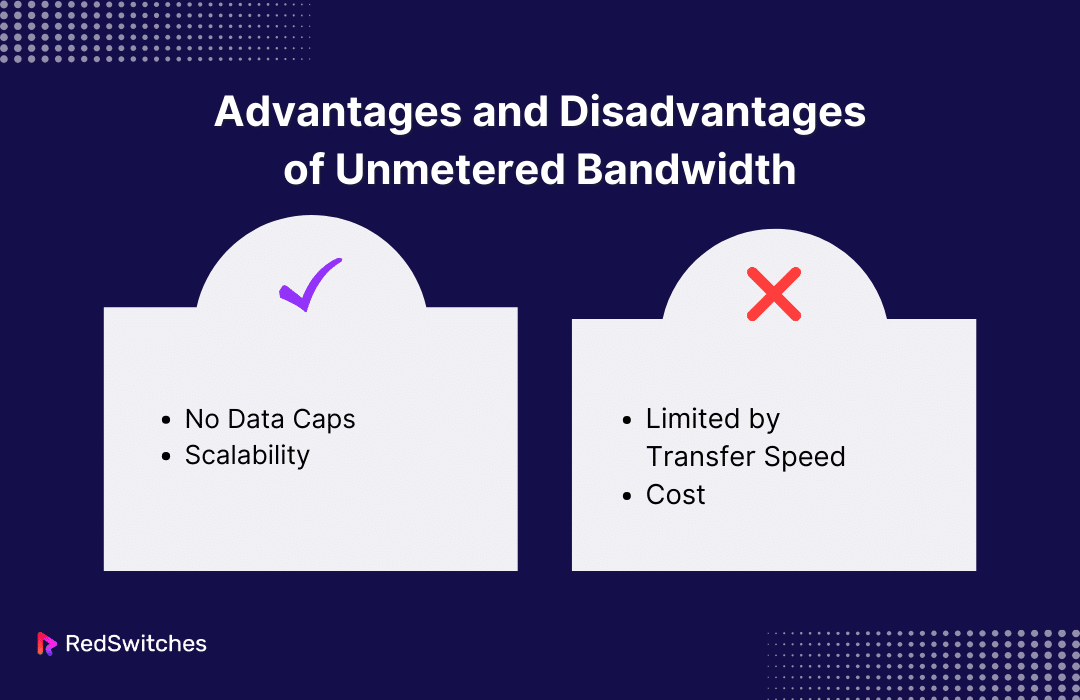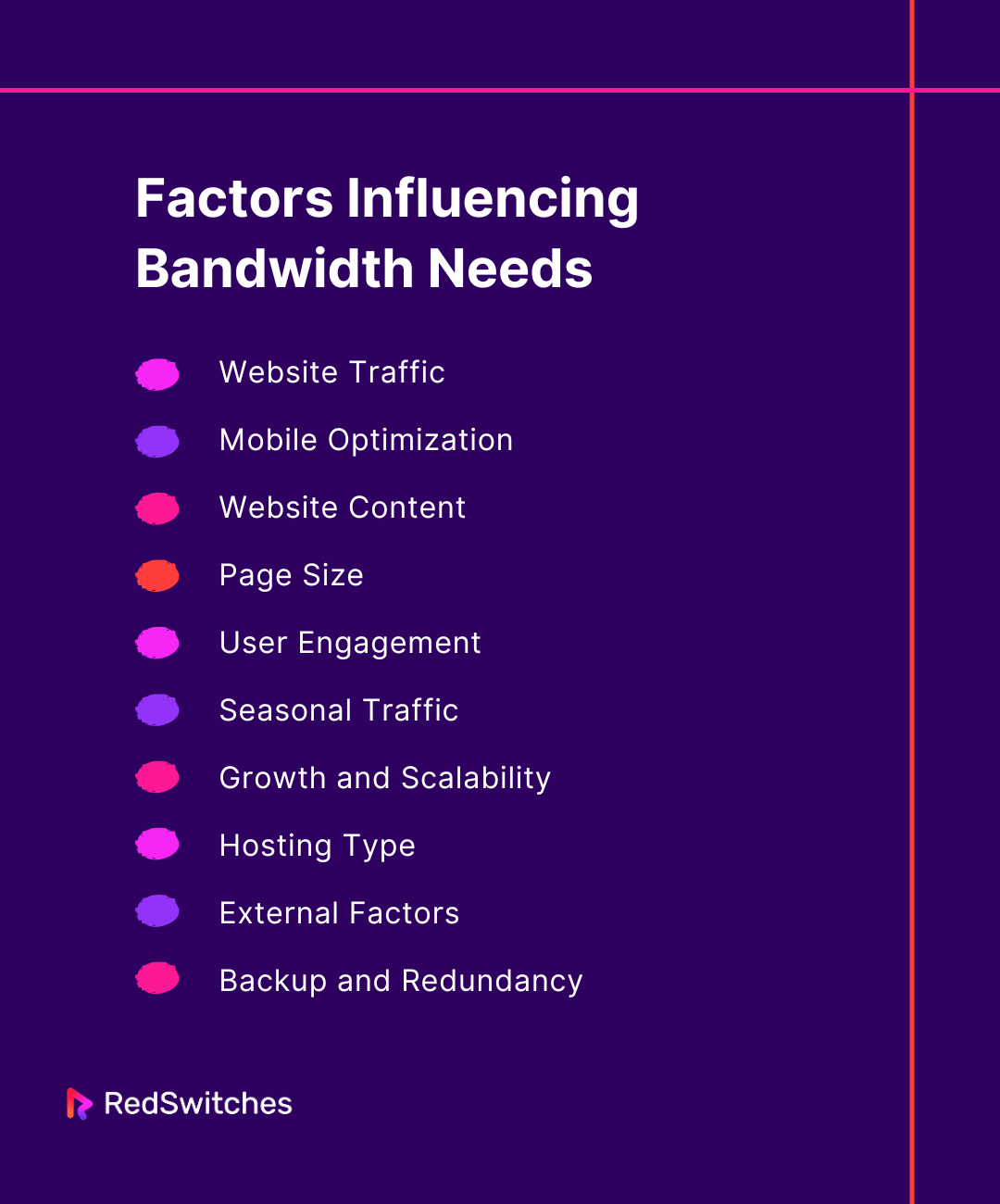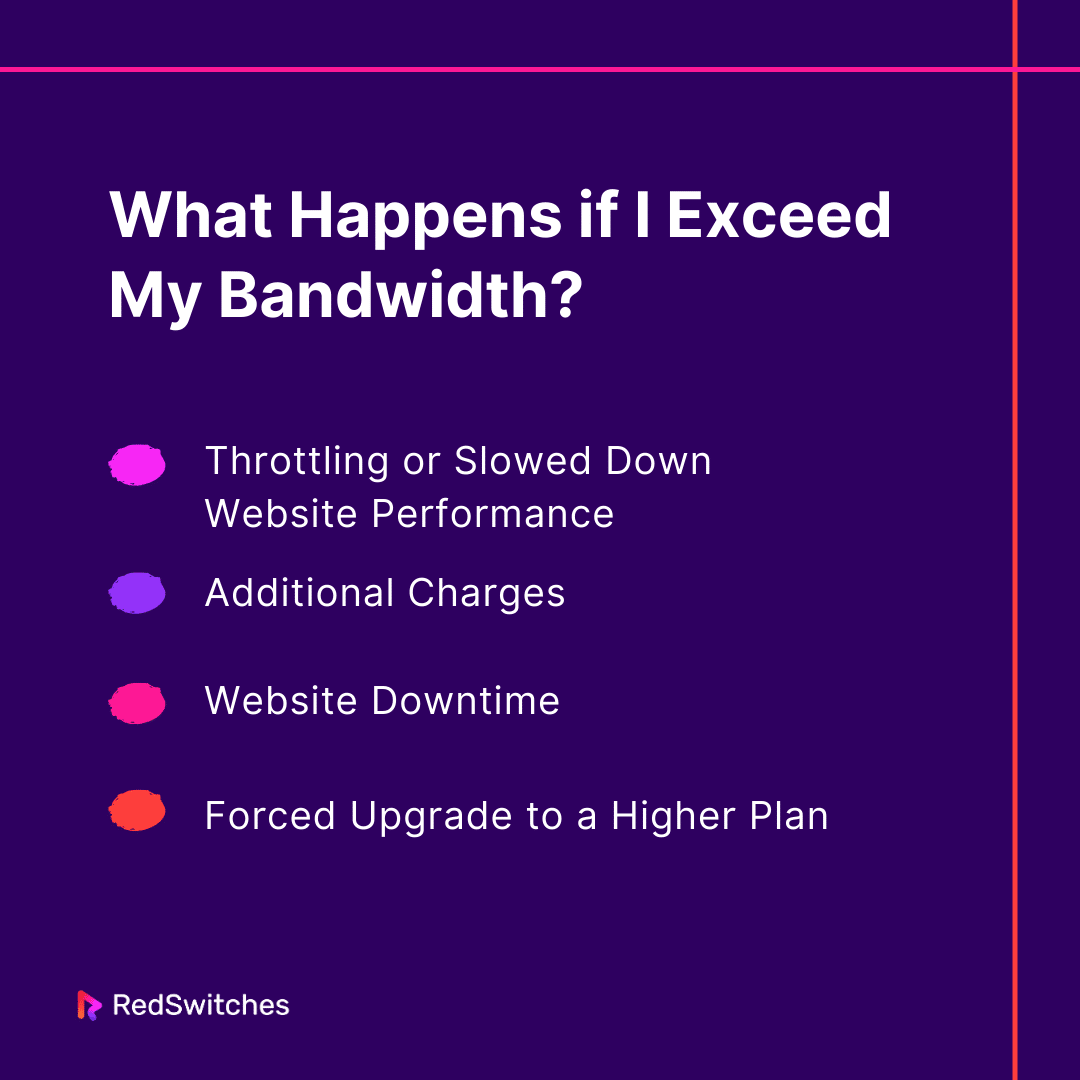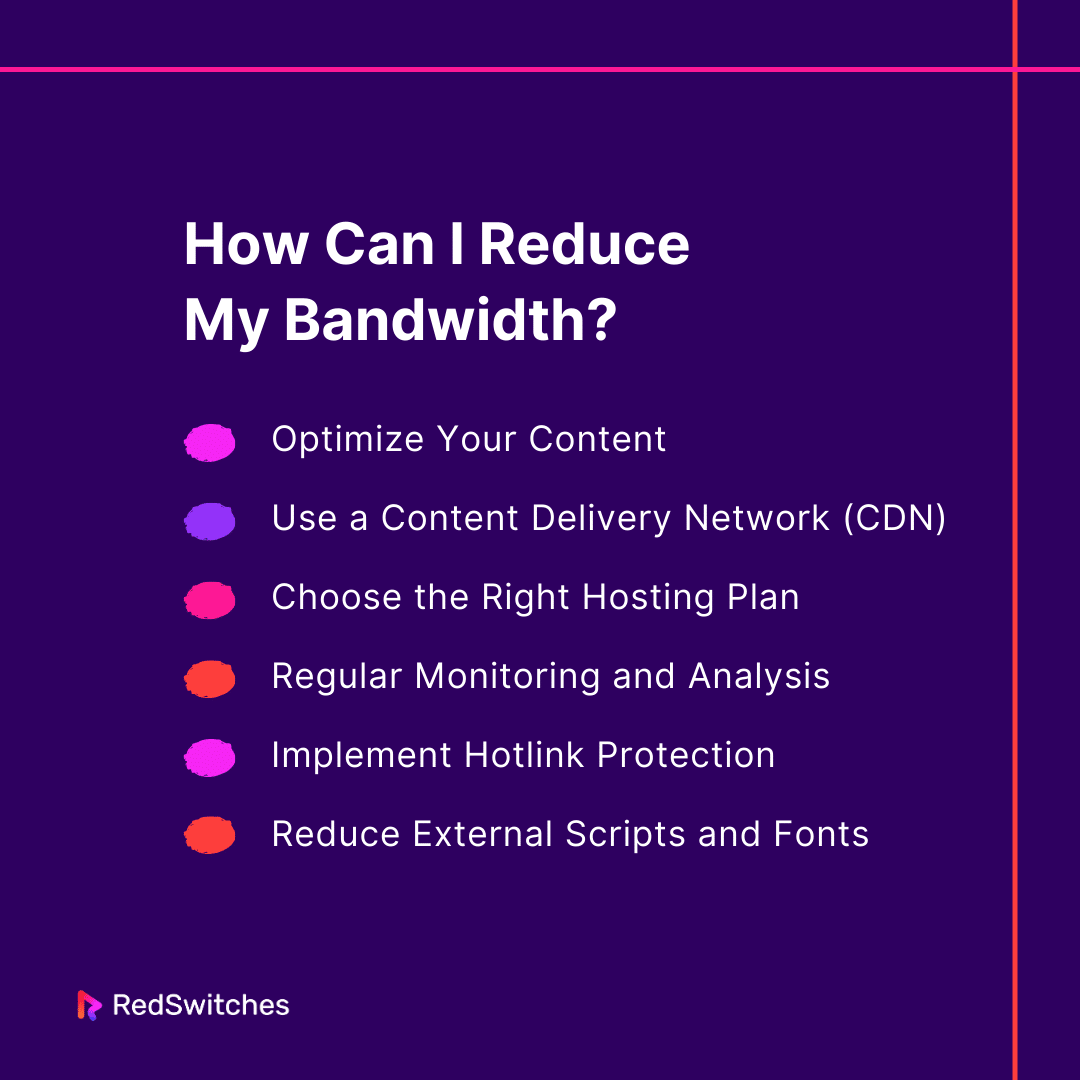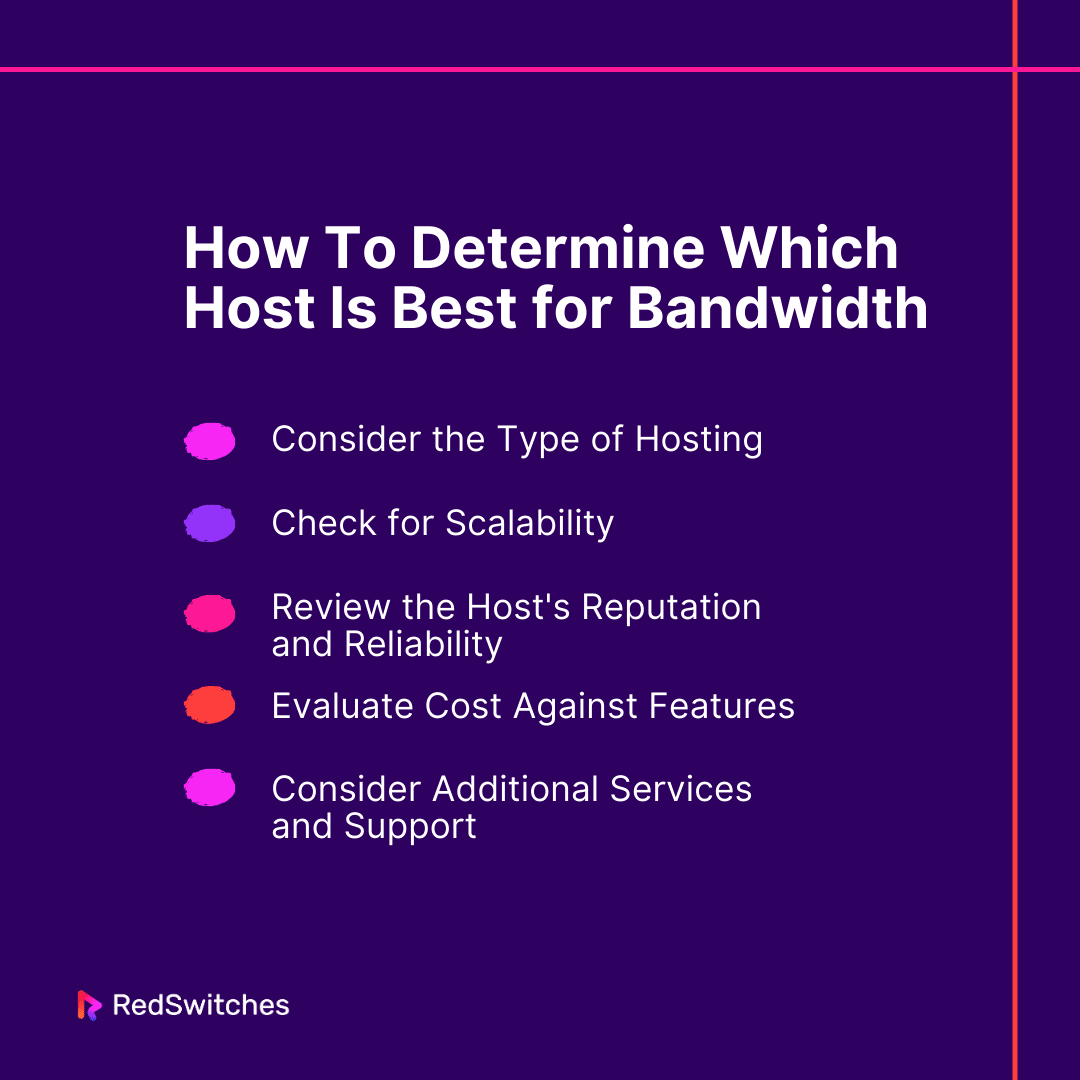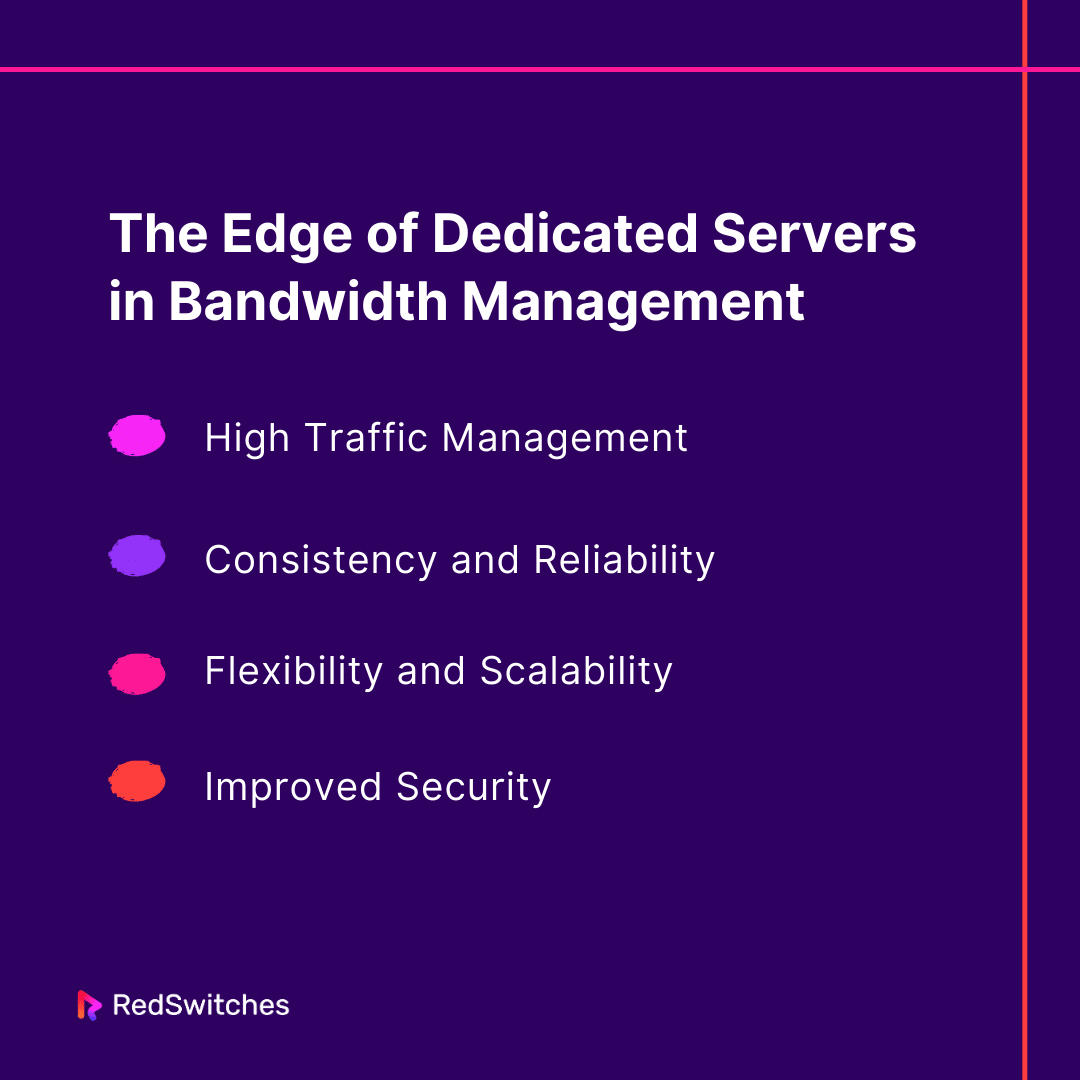One term you’ll frequently encounter when exploring your web hosting options is ‘hosting bandwidth.’ Often buried in technical jargon, understanding hosting bandwidth and its impact on your website is crucial for anyone running or planning to run an online platform.
Whether you’re a blogger, an aspiring e-commerce entrepreneur, or managing a website, the right bandwidth can differentiate between a smoothly running website and one that angers visitors with slow loading times.
This blog will take you through the basic definition of hosting bandwidth and its critical role in your website’s performance. It will help you understand the concept of hosting bandwidth, empowering you to make informed decisions about your hosting needs.
Let’s begin!
Table of Contents
- What is Bandwidth?
- What Is Web Hosting Bandwidth?
- Why is Bandwidth Important for Web Hosting?
- The Most Common Bandwidth Plan Options
- Factors Influencing Bandwidth Needs
- What Happens if I Exceed My Bandwidth?
- How Can I Reduce My Bandwidth?
- How To Determine Which Host Is Best for Bandwidth
- The Edge of Dedicated Servers in Bandwidth Management
- Key Takeaways
- Conclusion
- FAQs
What is Bandwidth?
Before we discuss what is bandwidth in hosting, it is important to go over the definition of bandwidth.
Bandwidth is the maximum rate at which data may be sent via a network connection at a specific time. Bandwidth is usually measured in bits per second (bps), megabits per second (Mbps), or gigabits per second (Gbps).
The capacity and speed of a network connection are largely dependent on its bandwidth, which affects how rapidly data can be transferred or received. Greater bandwidth enables the simultaneous transfer of more data, improving online gaming, streaming, downloading performance, and internet speeds.
What Is Web Hosting Bandwidth?
Credits: FreePik
So, what is hosting bandwidth? Website hosting bandwidth is the amount of data transported between a website, its visitors, and the internet at a specific time. This data is typically measured in gigabytes or terabytes each month.
It is an essential component of web hosting that impacts the accessibility and performance of a website. A large bandwidth guarantees that numerous users may access the website at once without any hiccups or failures.
This is especially important for websites with high traffic or those hosting media-rich content like videos and interactive features. When a website exceeds its allocated hosting bandwidth, it may become slow, unresponsive, or even temporarily inaccessible.
This can negatively impact user experience and the website’s effectiveness. Therefore, choosing a plan with adequate hosting bandwidth is vital for maintaining a website’s performance and reliability.
Do you want to learn more about bandwidth? Read our informative blog, ‘What Is Website Bandwidth & How Much Do I Need For My Site?’.
Why is Bandwidth Important for Web Hosting?
One common question individuals new to website management ask is why is hosting bandwidth important. Below is the answer:
Scalability
Scalability is one of the primary reasons why bandwidth is so important in web hosting. As your website flourishes, your hosting bandwidth needs will increase. If you have unlimited bandwidth hosting, you can conveniently scale your website without worrying about exceeding bandwidth limits. This is especially important for websites that experience sudden spikes in traffic or have a steadily growing visitor percentage.
With dedicated server hosting unlimited bandwidth, you have the luxury of knowing your website can grow without bandwidth-related restrictions. This type of hosting is ideal for businesses expecting rapid expansion or those that experience seasonal traffic surges.
Website Speed
According to experts, one in every four visitors would leave a site if it takes over four seconds to load. A great way to ensure visitors stay on your website is to focus on improving your website speed. Thankfully, another critical aspect of bandwidth is its impact on website speed.
When you choose a hosting plan with appropriate bandwidth, you ensure that your site can handle multiple simultaneous connections without slowing down. This is where unmetered dedicated servers become a valuable asset. Unmetered servers do not have a defined limit on the amount of data transfer. This allows for better traffic handling without compromising speed.
Also Read: Improving Website Speed and Performance with Dedicated Server Hosting
User Experience
User experience is profoundly influenced by hosting bandwidth. Visitors expect fast, responsive websites, and any sign of a slow-loading website can frustrate them, prompting them to never return to the site again.
A site hosted on an unlimited bandwidth server will likely load quickly and efficiently, even during peak traffic times. Quick loading times are essential for keeping your visitors happy and reducing bounce rates, which helps with search engine rankings.
Handling Traffic Spikes
Imagine an online retailer during Black Friday sales or a news portal during an election night. These scenarios can lead to a major increase in website visitors. This is where bandwidth becomes a lifeline.
High bandwidth capacity acts like a broad highway. It allows more traffic to flow smoothly without congestion. When a website experiences a sudden influx of visitors, adequate bandwidth ensures the server can handle the increased data load.
Content Quality and Diversity
Bandwidth is the key to balancing high-quality content and website performance. For instance, a video streaming site requires substantial bandwidth to deliver high-definition videos efficiently. If the bandwidth is insufficient, videos might buffer endlessly, images might not load properly, and interactive features might become unresponsive.
Websites today are accessed from various devices, including smartphones, tablets, and laptops, with different capabilities and screen resolutions. Adequate bandwidth allows for optimizing content for these diverse devices. It ensures that all users, regardless of how they access the website, receive a high-quality experience.
Are you confused about which dedicated server specs to choose? Read our informative guide, ‘Choosing The Right Dedicated Server Specs’, to make an informed decision.
The Most Common Bandwidth Plan Options
Below is a list of the three common bandwidth plan options:
Metered Bandwidth
Metered Bandwidth plans refer to those where you are allocated a certain amount of monthly data transfer. It’s much like a mobile data plan where you pay for a certain amount of data and must stay within this limit.
Advantages
- Cost-Effective for Small Sites: Metered bandwidth can be cost-effective for smaller websites with predictable traffic, as you pay for a set limit that aligns with your needs.
- Easy Monitoring: These plans make monitoring your site’s data usage easier, helping you understand your site’s traffic and performance better.
Disadvantages
- Overage Fees: You could face overage fees if your site exceeds the allocated bandwidth. This can be expensive and unpredictable, especially if your site experiences an unexpected traffic increase.
- Limited Scalability: Metered bandwidth can be limiting for growing websites. As traffic increases over time, it demands regular plan upgrades.
Unlimited Bandwidth
Unlimited Bandwidth plans are often marketed as unlimited monthly data transfer. This option can be very appealing, especially for websites expecting fluctuating or high traffic.
Advantages
- Predictable Costs: There are no overage fees, and the hosting cost remains constant regardless of the data transferred, making budgeting more straightforward.
- Handling Traffic Spikes: These plans can accommodate unexpected surges in traffic without additional costs or performance issues.
Disadvantages
- Not Truly Unlimited: Despite the name, these plans often have hidden limitations. Hosting providers can impose restrictions on server resources, meaning your site could still suffer from slow down during traffic spikes.
- Potential for Throttling: Some hosts may throttle bandwidth usage if they think your site uses too much. This can negatively impact site performance.
Unmetered Bandwidth
Unmetered Bandwidth plans offer a middle ground. Unlike unlimited plans, they don’t promise infinite bandwidth. Instead, they offer a data transfer rate without a limit on the total data amount.
Advantages
- No Data Caps: There’s no limit on the amount of data transferred. This makes it suitable for websites with heavy content like videos and high-quality images.
- Scalability: It’s easier to scale your website as it grows without worrying about hitting specific data limits.
Disadvantages
- Limited by Transfer Speed: The catch is in the transfer rate. If the server provides a certain speed, the actual amount of data that can be transferred is limited by this speed.
- Cost: Unmetered plans can be more costly than metered plans. This makes them less suitable for small, low-traffic websites.
Factors Influencing Bandwidth Needs
In the dynamic landscape of digital connectivity, understanding the factors that influence bandwidth needs is paramount. Bandwidth, the lifeblood of internet connectivity, dictates how swiftly and efficiently data is transmitted across your network. This section delves into the various elements that determine your bandwidth requirements, ensuring that your digital operations run smoothly and effectively. Whether you’re managing a bustling e-commerce platform or a content-rich educational portal, comprehending these factors is crucial for optimizing your online presence.
- Website Traffic
The most significant factor affecting hosting bandwidth needs is the amount of traffic your website receives. More visitors equate to more data being transferred. High-traffic sites, including popular blogs, e-commerce platforms, or news portals, will naturally require more bandwidth than smaller, personal websites.
- Mobile Optimization
With more and more people using mobile devices to access the internet, mobile optimization can impact bandwidth usage. Mobile-optimized websites are generally lighter and consume less bandwidth, while sites not optimized for mobile might load full desktop versions on mobile devices, using more bandwidth.
Credits: Pexels
- Website Content
The type of content hosted on your site dramatically influences bandwidth usage. Sites heavy on multimedia content like high-resolution images, videos, and audio files consume more bandwidth. In contrast, text-based websites with optimized images require significantly less.
- Page Size
The overall size of your web pages is directly tied to the content available on them. Larger pages will use more bandwidth per visit. Optimizing your web pages for size through strategies like image compression and minifying code can help lower bandwidth needs.
Credits: FreePik
- User Engagement
The level of user interaction also plays a role. Features like file downloads, streaming services, and interactive user interfaces can increase bandwidth usage. The more engaging your website is (with multimedia content, interactive features, etc.), the higher the bandwidth requirement.
Also Read: Multiple Domain Hosting On One Hosting Plan: How Does It Work.
- Seasonal Traffic
Certain websites experience seasonal spikes in traffic – for instance, retail websites during the holiday season. Planning for these peaks is important to ensure your site remains functional during high-demand periods.
- Growth and Scalability
Anticipating growth is essential. Planning for scalable bandwidth is critical if you expect your website or content to grow in popularity. This helps avoid the need for sudden changes in hosting plans.
- Hosting Type
Credits: FreePik
The type of hosting service you choose (shared, VPS, dedicated server, or cloud hosting) directly impacts bandwidth limits and scalability. Shared hosting often has stricter bandwidth limits than dedicated server or cloud hosting solutions.
- External Factors
External integrations and third-party services, including APIs, widgets, or external hosted media, can contribute to your overall bandwidth usage. The more external integrations and third-party services you have, the more bandwidth usage it will incur.
- Backup and Redundancy
Although crucial for website security and integrity, regular backups and redundancy mechanisms also use bandwidth. This is why it is important to consider backup and redundancy in your overall bandwidth calculation.
Also Read: Dedicated Web Hosting Servers: Definition, Cost, & Features.
What Happens if I Exceed My Bandwidth?
Individuals looking to use metered bandwidth may wonder what happens if they exceed their bandwidth. Below are a few issues you may face if you exceed your hosting bandwidth:
- Throttling or Slowed Down Website Performance
Exceeding your bandwidth limit often leads to throttling. This refers to the deliberate slowing down of your website’s speed by the hosting provider. This reduction in data transfer rate can cause your pages to load sluggishly. This affects everything from image loading to the execution of scripts.
Slow websites can make visitors unhappy and negatively impact SEO rankings, as search engines prioritize faster-loading sites. The cumulative effect can be a notable drop in website traffic and a tarnished reputation, as users tend to avoid returning to slow-performing sites.
- Additional Charges
Overusing the bandwidth allotted to you will usually result in extra fees, as stated in the terms of service for your hosting plan. These expenses can vary depending on the provider and the plan selected. Usually, the amount of data exceeding the limit is used to compute them.
These overage fees can be an unwanted surprise for websites experiencing unexpected spikes in traffic, such as those caused by a viral content piece or a successful marketing campaign. Understanding your hosting plan’s billing structure for bandwidth overages is critical to budget accordingly and avoid unexpected costs.
- Website Downtime
Some hosting providers may respond to exceeded bandwidth limits by temporarily suspending your website. This measure is usually more common among budget or shared hosting plans, where resources are strictly allocated.
During this downtime, visitors cannot access your site, leading to lost opportunities, especially if your website is an e-commerce platform or a primary source of business leads. Prolonged or frequent downtime affects immediate revenue and can damage your brand’s credibility and customer trust over time.
- Forced Upgrade to a Higher Plan
The involuntary upgrade to a more expensive hosting plan is a less discussed but equally impactful consequence of exceeding hosting bandwidth. Some providers may automatically move your website to a higher-tier plan with more bandwidth capacity when you exceed your current plan’s limit. Although this keeps your site working, it also increases your hosting expenses, sometimes without prior warning.
Such automatic upgrades can strain your budget. They can significantly damage small businesses or personal websites with limited financial flexibility. This is why its important to regularly review your hosting needs and communicate with your provider to avoid unexpected plan changes.
How Can I Reduce My Bandwidth?
Below are a few tried and tested strategies for reducing hosting bandwidth usage:
Optimize Your Content
- Compress Images and Videos: Large images and videos can drain a lot of bandwidth. This is where image compression tools come in. These tools can help reduce file sizes without significantly affecting quality.
- Minimize Code: Minify CSS, JavaScript, and HTML files. The minifying process helps eliminate unnecessary characters from your code without changing functionality and reducing file sizes.
- Leverage Browser Caching: By enabling browser caching, you can store some of your website’s data on your visitors’ devices for a set period. This means repeat visitors will load your website faster and consume less bandwidth on subsequent visits.
Use a Content Delivery Network (CDN)
Setting up a CDN is a highly effective tactic. A content delivery network (CDN) uses a worldwide network of computers to provide material to users according to their location. It uses the server closest to the user to store and deliver static material from your website (images and JavaScript files).
This approach speeds up content delivery and significantly reduces the load on your primary server, minimizing bandwidth usage. Distributing requests across multiple servers prevents any single server from becoming overwhelmed, ensuring a more efficient use of resources.
Choose the Right Hosting Plan
It’s crucial to have a hosting plan that aligns with your website’s bandwidth needs. As your website scales and attracts more traffic, you may find that your current plan is no longer sufficient.
Upgrading to a plan offering more bandwidth can be more cost-effective than paying for overages. Some hosting providers offer scalable plans that adjust bandwidth limits based on your site’s traffic. This helps ensure you only pay for what you use.
Also Read: Read All About Unmetered Bandwidth Dedicated Server.
Regular Monitoring and Analysis
Constant bandwidth usage monitoring is key to managing it effectively. Most hosting providers offer analytics tools within their dashboards. These tools allow you to track your bandwidth consumption.
Regularly analyzing this data can help you identify trends, peak usage times, and content that consumes the most bandwidth. Understanding these patterns is essential for making informed decisions about content optimization and potential plan upgrades.
Credits: Pexels
Implement Hotlink Protection
Hotlinking can be a major unseen drain on your bandwidth. When other websites link directly to images or files hosted on your server, they use your bandwidth to display this content.
Implementing hotlink protection ensures that your website can only load your content. It prevents others from using your resources without permission. This can be configured in your web server settings or via .htaccess rules.
Reduce External Scripts and Fonts
Every external script or font your site loads can add to your bandwidth usage. While these elements can be essential for functionality or aesthetics, they can also be bandwidth-intensive. Evaluate each external resource for its impact and necessity.
Removing non-essential scripts and fonts or replacing them with more efficient alternatives can help with notable bandwidth savings. For instance, consider hosting fonts locally instead of using external font services. You can also lower the use of heavy third-party analytics tools.
How To Determine Which Host Is Best for Bandwidth
When determining which host is best for your bandwidth needs, several key factors should be considered to ensure you select a host that meets your current requirements and accommodates future growth. Below are a few factors you must consider before hiring a hosting bandwidth provider to ensure informed decision-making:
Consider the Type of Hosting
The type of hosting service you choose (shared, Virtual Private Server (VPS), dedicated server, or cloud) greatly influences your website’s hosting bandwidth and overall performance. Here is a breakdown of each hosting type:
- Shared hosting, where resources are divided among several sites on the same server, generally offers lower bandwidth and less control. This makes it ideal for smaller websites with lower traffic.
- VPS hosting provides a middle ground, offering better resources and bandwidth than shared hosting but at a lower cost than dedicated hosting.
- Dedicated server hosting assigns an entire server to your website. It provides maximum bandwidth and control and is ideal for high-traffic and resource-intensive sites.
- Cloud hosting offers scalable resources based on a pay-as-you-go model, including bandwidth. This is excellent for sites with fluctuating traffic.
Check for Scalability
Credits: FreePik
Scalability is crucial, especially if you anticipate growth in website traffic. A good hosting provider should allow you to upgrade your bandwidth and other resources easily with minimal hassle.
This flexibility ensures your website can handle increased traffic and data load as it grows without facing performance issues or downtime. Some hosts offer automatic scalability. This can be particularly beneficial during unexpected traffic surges.
Review the Host’s Reputation and Reliability
A host’s reputation for reliability and performance is an important factor when contemplating which hosting provider to choose. Frequent downtimes impact your site’s accessibility and harm your brand’s reputation and search engine ranking.
Investigate the host’s historical uptime records and read customer reviews and testimonials on credible websites like Trustpilot. Look for hosts that offer uptime guarantees, which shows their confidence in maintaining consistent service.
Evaluate Cost Against Features
While cost is an important consideration, it should be weighed against the features and quality of service provided. Go for a host that offers a good balance between cost and the features you need. Be wary of hosts offering extremely low prices, as they might compromise quality, performance, or customer support.
Consider Additional Services and Support
Credits: FreePik
Beyond bandwidth, consider other services and support the host provides. Reliable customer support, available 24/7, quickly resolves technical issues. Additional services like regular backups, advanced security measures, and SSL certificates are integral for protecting your website’s data and fostering trust among your visitors.
Also Read: How Does Web Hosting Work? A 4-Step Breakdown.
The Edge of Dedicated Servers in Bandwidth Management
Dedicated servers play a crucial role when it comes to bandwidth management. Here is how:
- High Traffic Management: With a dedicated server, your site can manage high traffic volumes effortlessly. This is because the server’s entire bandwidth capacity is reserved for your site, ensuring smooth user experiences even during peak traffic.
- Consistency and Reliability: Dedicated servers offer consistent bandwidth, unlike shared hosting, where bandwidth is distributed among multiple users. This consistency is crucial for businesses that cannot afford downtime or a slow website.
- Flexibility and Scalability: One of the perks of a dedicated server is the ability to customize it according to your needs, including bandwidth. You can conveniently scale the bandwidth to meet increased demands as your website grows. This helps ensure your site remains fast and accessible.
- Improved Security: Dedicated servers provide better security features, extending to bandwidth usage. You have more control over the transferred data, reducing the risks of malicious attacks that often target bandwidth vulnerabilities.
Choosing the Right Amount of Hosting Bandwidth
When selecting a dedicated server, evaluating your hosting bandwidth needs accurately is important. Consider factors like your website’s content (video, interactive elements, high-resolution images), expected traffic, and peak usage times.
Remember, although having excess hosting bandwidth is a safety net, it also comes with added expenses. Striking the right balance is key to efficient and cost-effective web hosting. The best way to strike this balance is to talk to your web hosting bandwidth provider.
Understanding and appropriately managing bandwidth is pivotal for the success of a website, especially when using dedicated servers. It’s not only about having a lot of bandwidth. It’s about having enough to meet your needs without compromising reliability, speed, and user experience.
Key Takeaways
- Bandwidth in web hosting is the data amount that can be transferred between your website and its users within a specified time.
- Bandwidth is vital for scalability, website speed, and user experience.
- Common bandwidth plan options include metered, unmetered, and unlimited bandwidth.
- Determining your bandwidth requirements demands careful assessment of your site’s traffic, the size of your content, and projected growth.
- Exceeding bandwidth limits can lead to additional charges, slower site performance, or temporary website shutdown.
- The key strategies to reduce bandwidth usage are optimizing images, caching, and reducing web page size.
- Choosing the right host for bandwidth requires you to research providers with the right balance of bandwidth options, cost, scalability, and customer support.
- Dedicated servers often provide better bandwidth management, offering high speeds and handling high traffic volumes effectively.
- Choosing the right amount of bandwidth requires you to analyze your current and future needs to select a bandwidth plan that aligns with your website’s objectives and audience persona.
Conclusion
As we’ve investigated the basics of hosting bandwidth, it’s evident that choosing your hosting provider is crucial. This is where RedSwitches steps in. Known for exceptional hosting solutions, RedSwitches offers various services tailored to meet diverse bandwidth needs.
Whether you’re a new business or a large corporation with extensive demands, our dedicated servers are designed to provide the robust, reliable, and high-speed hosting experience your website deserves.
With RedSwitches, you get ample bandwidth and a partnership that ensures your website remains fast, accessible, and efficient. Visit our website today and discover how our dedicated server hosting solutions can elevate your online presence.
FAQs
Q. What is website bandwidth?
Website bandwidth refers to the amount of data transferred between a user’s website and the visitors’ browsers within a specific period, typically measured in gigabytes (GB) per month.
Q. How is bandwidth usage calculated for a website?
Bandwidth usage for a website is calculated based on the data transferred when visitors access the site, including web pages, images, videos, and any other content. This data is measured in bytes and then converted to the appropriate units, such as kilobytes, megabytes, or gigabytes, for billing purposes.
Q. What factors determine the right amount of bandwidth for a website?
The right amount of bandwidth for a website is determined by factors such as the site’s average number of daily visitors, the size of web pages and media files, the frequency of file downloads, and the overall traffic volume. Understanding these factors is crucial in selecting a hosting package with the appropriate bandwidth allocation.
Q. Can shared hosting affect website bandwidth?
Yes, shared hosting can impact a website’s bandwidth usage. Since multiple websites share the same server resources in a shared hosting environment, the available bandwidth may fluctuate based on the activities of other sites on the server. This can lead to variations in website performance and bandwidth availability.
Q. How can I calculate my website’s bandwidth needs?
You can calculate your website’s bandwidth needs by estimating the average page size, multiplying it by the number of monthly visitors, and then considering the average number of page views per visitor. Additionally, assess the impact of multimedia content and other downloadable files on your bandwidth requirements.
Q. What should I do if my website requires a lot of bandwidth?
If your website demands a substantial amount of bandwidth, consider opting for a hosting package with higher bandwidth allowances or considering dedicated hosting solutions that provide more bandwidth resources to cater to your site’s needs.
Q. How can I reduce my website’s bandwidth usage?
You can reduce your website’s bandwidth by optimizing images and multimedia content, implementing caching mechanisms, compressing files, and using content delivery networks to distribute website content. These strategies can help minimize the amount of bandwidth your website consumes.
Q. Do all web hosting providers offer unlimited bandwidth?
Not all web hosting providers offer unlimited bandwidth. Many hosting companies limit monthly bandwidth allocations based on the hosting package. Be sure to review the bandwidth in web hosting plans offered by different providers to identify the most suitable option for your website.
Q. Is there a way to see how much bandwidth my website is consuming?
Yes, most hosting providers offer tools and resources to monitor the bandwidth usage of your website. These tools allow you to track monthly bandwidth consumption and analyze trends, enabling you to make informed decisions about your hosting environment and bandwidth requirements.
Q. What are the potential impacts of exceeding my hosting package’s bandwidth limitations?
Exceeding your hosting package’s bandwidth limitations may result in additional charges, temporary suspension of services, or even website unavailability. It’s essential to be mindful of your monthly bandwidth usage to avoid these potential consequences and consider options for managed wordpress hosting if your site’s needs exceed your current plan’s limits.
